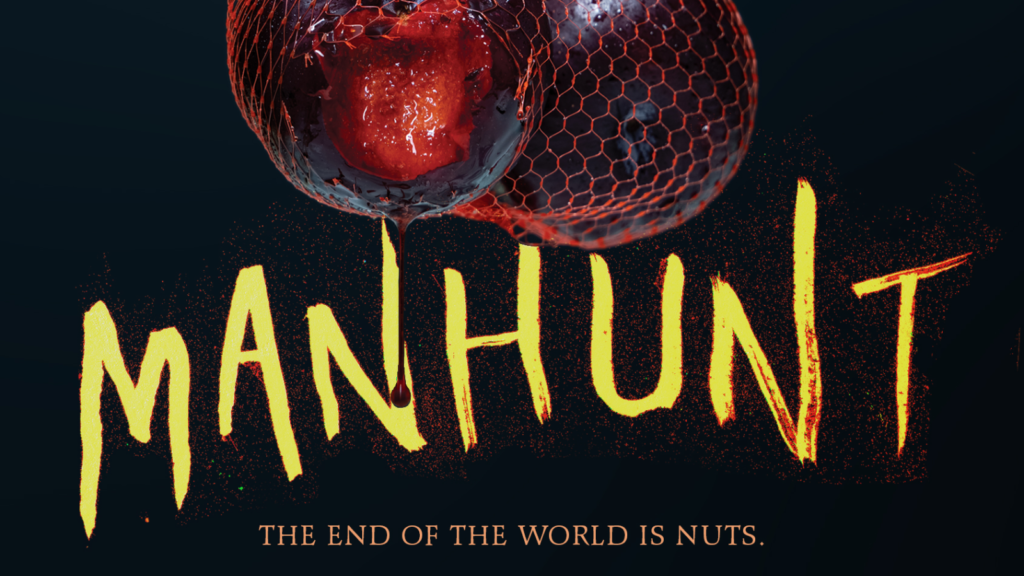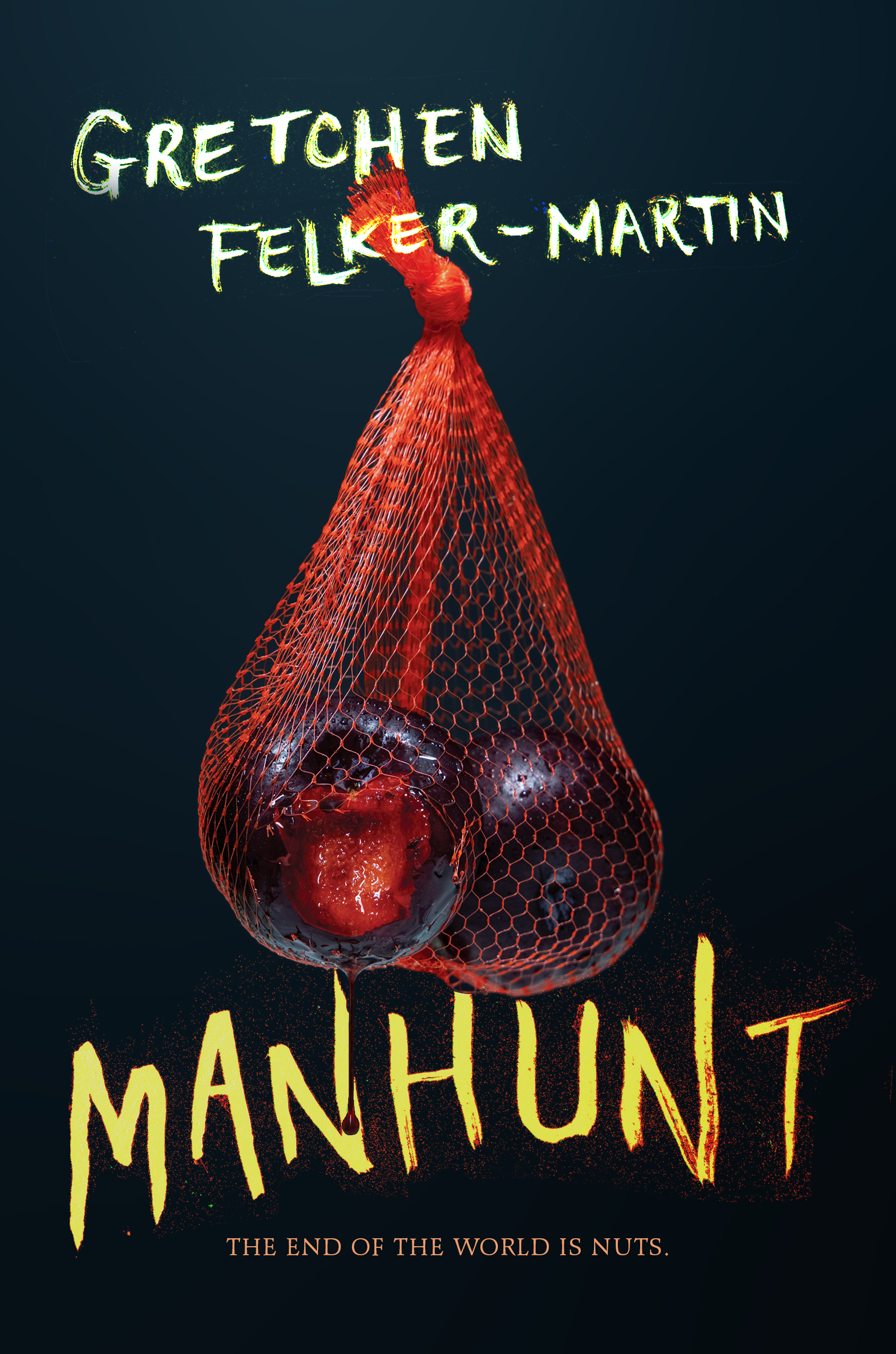
From its first tense, gruesome moments to its explosive finale, Gretchen Felker-Martin’s debut novel Manhunt grabs its reader by the balls and refuses to let go. Set in a post-apocalyptic world in which an enigmatic virus turns anyone with sufficiently high testosterone levels into a violent mutant, Manhunt primarily follows two trans women as they harvest the estrogen present in the mutant men’s testicles and try to survive in their new matriarchal world. And indeed, “matriarchy” is the key term here. Much of the novel is preoccupied with trans-exclusionary radical feminists (TERFs) who have coalesced into a brutal militia that hunts down transgender women under the guise of preemptively killing mutants-to-be. Indeed, the TERFs are the real show here, their “XX” military gear inspiring as much horror as the howling remains of the world’s men.

As a so-called “gendercide” novel—a genre in which one sex or gender, often but not always men, are killed, disappeared, or otherwise rendered powerless—Manhunt enters a crowded field, competing with entries such as Brian K. Vaughn and Pia Guerra’s Y: The Last Man and Naomi Alderman’s The Power, or even Margaret Atwood’s The Handmaid’s Tale. While a common critique of gendercide novels is the relatively binary way that they handle sex and gender, Manhunt bucks the trend by delving deep into the messiness that its very concept creates. Felker-Martin, a trans woman, handles her trans feminine characters with all the nuance you might expect, but she also offers a surprisingly complex view of the ways a testosterone-based apocalypse might affect trans men, pre-pubescent boys, and cis men and women who have atypical hormonal balances. In this way, Manhunt is a sort of meta-gendercide novel, examining the inherent cruelty of the genre and the biological essentialism it’s based on in bloody detail.
And that brings me to the novel’s controversies. Since its announcement, Manhunt has been beset by a number of competing discourses by trans people, allies, and transphobes alike, all of whom have read any number of social issues into the book’s premise. Perhaps the most well-known of these controversies has involved none other than Harry Potter author turned transphobic crusader herself, JK Rowling, whom Felker-Martin has proudly declared “dies in MANHUNT”. And die she does, not at the hands of a murderous trans woman, as some right-wing demogogues have alleged, but in an ironic accident that one of the novel’s characters compares to Edgar Allen Poe’s classic tale “The Masque of the Red Death.” Manhunt’s critics are not limited to transphobes, however. In particular, the book’s announcement sparked a discussion about the ethics of portraying testosterone as the vector of an illness, with many people (particularly many trans men relying on testosterone for their own transitions) conjecturing that the novel would be an angry diatribe about men and testosterone by an author with a bone to pick.
Manhunt is not a diatribe, however, nor is it merely a brainless romp that villainizes men. Rather, Manhunt uses its gore and its horror to reflect the contemporary trans condition. At its core, Manhunt is a tragedy, and not just because of its shocking character deaths. Nor does Felker-Martin, nor the novel itself, see herself pitted against testosterone. Indeed, much of the world sees Fran and Beth—Manhunt’s trans protagonists—as timebombs, would-be men who are just one missed estrogen dose away from monstrosity themselves. Manhunt doesn’t embrace a perception of testosterone as harmful, it critiques it, using the virus as a metaphor for the harm the gender binary enacts on many people, not just trans women. Even the novel’s TERF army, the Maryland Womyn’s Legion, is treated with nuance, portrayed not as a mass of hateful bigots, but as a collection of individual women whose fears and desires have led them to a dreadful conclusion. Manhunt is a very human novel, one that’s as interested in the feeling of a lover’s embrace as it is the texture of pan-fried testicles. The novel’s characters seek connection and romance, they worry about the contours of their body and the stubble on their faces, they ache and hunger and triumph and fail. The real shocking part of Manhunt is not its cruelty, but its radical empathy in spite of all the blood. Manhunt is a novel that cares so much it hurts. Is Manhunt for everyone? Oh god no. This is a horror novel through and through, saturated with blood and riddled with scenes guaranteed to turn your stomach. Even more, it’s an unapologetically trans novel, unafraid to portray the unique struggles, victories, and lingering pains that many trans people keep hidden from the larger public. I can’t promise that it’ll speak to everyone—like Felker-Martin, I’m a white trans woman, and I can’t speak to how trans people of color might view the novel—but I found it to be utterly engrossing, and painfully relatable. If you like your queer lit with a side of slasher horror, Manhunt is your book.

Julia Ftacek
Julia Ftacek is a writer, baker, and PhD candidate from Kalamazoo, Michigan. You can read her words in Contingent Magazine, The Rambling, and more.
